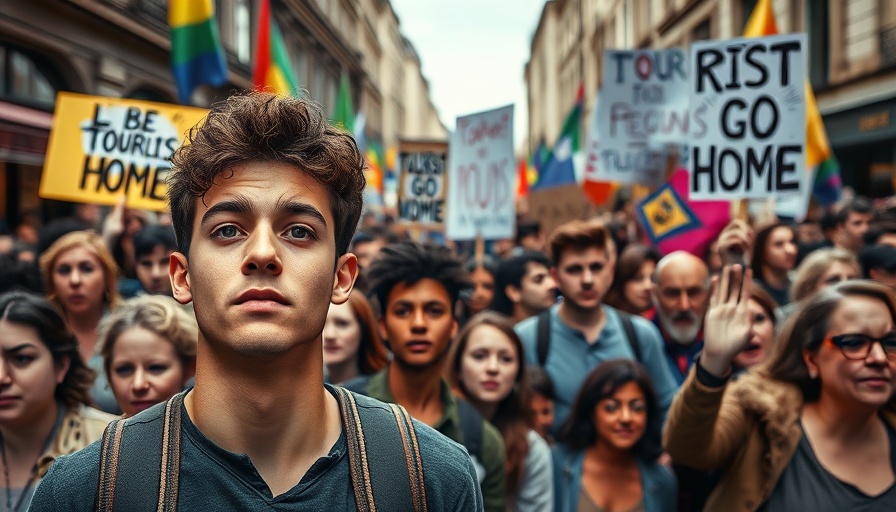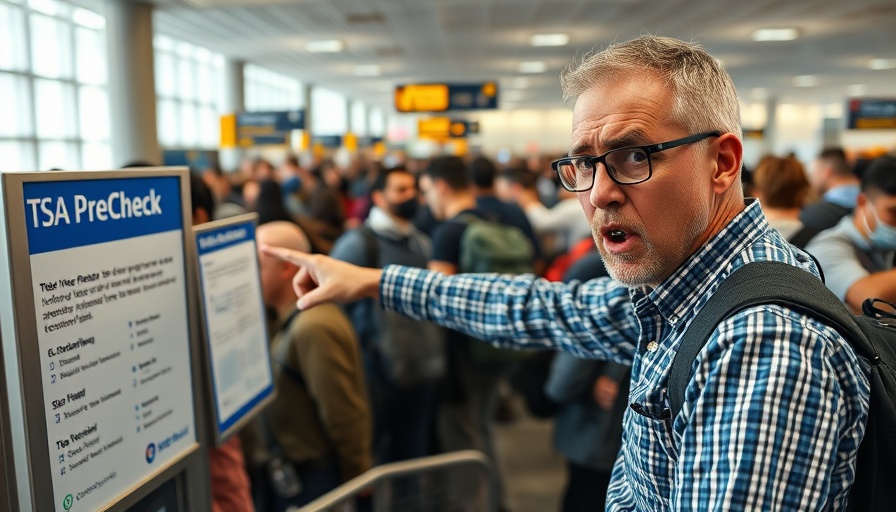
Understanding Europe's Overtourism Dilemma
Europe, a continent steeped in history and culture, is experiencing a renaissance of visitors. As of 2024, 756 million individuals have stepped onto its streets, reveling in the charm of its historic cities. However, this surge comes with a cost. What was once a dream vacation can inadvertently step into the realm of over tourism—a phenomenon where the number of visitors strains local infrastructure, disrupts livelihoods, and diminishes the very charm that attracted travelers in the first place. This transformation has sparked protests among locals from Venice to Barcelona, who feel as if their homes are being lost to a relentless tide of tourists.
In 'Europe's Overtourism Crisis WILL Affect Your Trip (how to avoid),' the discussion dives into the challenges cities face due to overwhelming tourist numbers, highlighting insights that sparked deeper analysis on our end.
Roots of the Problem: A Historical Perspective
To comprehend how we arrived at this pivotal moment, we must look back at the trajectory of global tourism since World War II. In 1950, just 25 million international arrivals populated the globe. This figure exploded to 1.4 billion in 2018. The drivers? Affordable flights, cruises that unload thousands at once, and social media, which can make locations famous overnight. Cities like Venice, which hosts 25 million visitors against a backdrop of only 50,000 local residents, illustrate the stark imbalance caused by this deluge. What was once a haven of historical significance is now overrun, leading to character erosion and cultural discontent.
Local Backlash: Communities Unite Against Overtourism
Across Europe, a crescendo of voices is rising. Protests and marches have illuminated the urgent need for balance. Citizens are not rejecting tourists; rather, they are advocating for their right to live in vibrant, healthy communities. The tension between tourists and residents has led to cities implementing strict regulations. Venice is now charging day-trippers for entry and wrestling back control of its waterways from the massive cruise ships that once dominated its lagoon. Meanwhile, cities like Barcelona are cutting excess short-term rental permits to reclaim neighborhoods for local families.
Adapting to New Travel Norms: Essential Tips for Tourists
While the situation is undoubtedly complex, tourists have the power to mitigate their impact. Here are six practical tips for traveling responsibly while enjoying the best Europe has to offer:
- Research Behavior Rules: Different cities now enforce unique guidelines. For example, swimming in Venice's canals incurs steep fines, and sitting on the Spanish Steps in Rome can cost you up to €400. Being mindful of these regulations will allow for a harmonious visit.
- Stay Local: Opting for family-run hotels or Bed and Breakfasts not only supports the economy but also enriches your travel experience. Consider using tools such as Directo, which connects you directly with lodging owners for potentially lower rates.
- Travel During Off-Peak Seasons: The crowded peak season is transitioning, so aim for the shoulder season during late spring or early autumn. This approach lessens both crowds and costs.
- Delve Deeper: Instead of racing from one major city to another, spend meaningful time in smaller, less crowded destinations. Engaging with local towns fosters authentic experiences that enrich your journey.
- Master Timing for Attractions: Popular sites like the Sagrada Família demand advance bookings. Aim for early morning or late evening visits to enjoy these locations in a less crowded atmosphere.
- Consider Alternatives: Some attractions may not be worth the hype amidst the throngs of visitors. Exploring unexpected destinations can yield surprising finds—whether that's a quaint café or an undiscovered viewpoint.
Looking Ahead: Insights into Sustainable Travel
The future of travel lies in sustainability. As tourists, our choices matter. Cities are evolving, adapting to pressures but also seeking to preserve their unique identities. By practicing responsible tourism, we align ourselves with the local ethos and become stewards of cultural integrity.
Conclusion: Your Role in the Travel Narrative
While the overtourism crisis affects all travelers, we can play a vital role in reshaping the experience. As you prepare for your next European adventure, reflect on the impact of your choices. By promoting respectful, authentic interactions with Europe’s diverse communities, we can safeguard the magic of travel—for ourselves and for generations to come.
 Add Row
Add Row  Add
Add 




Write A Comment